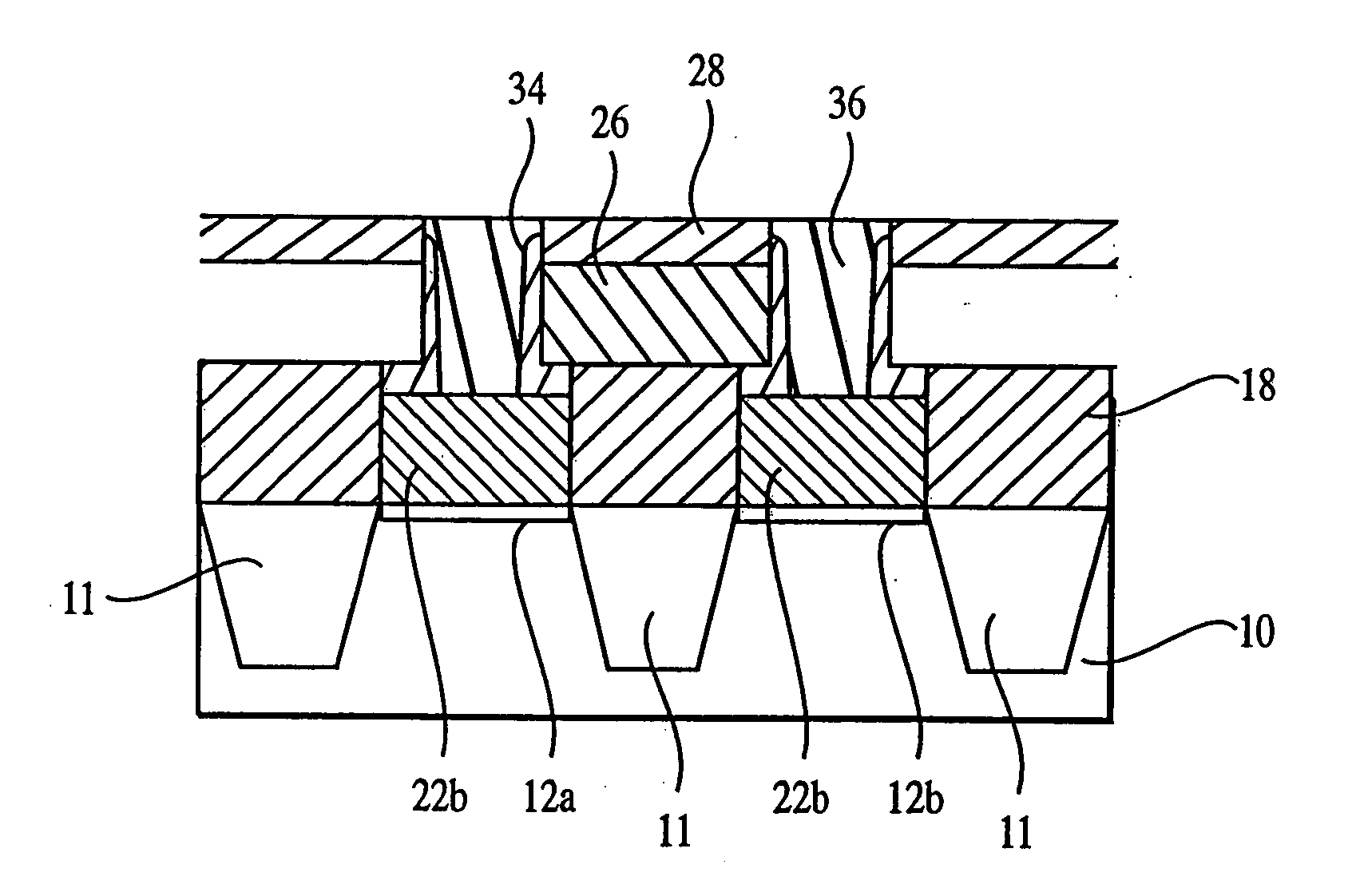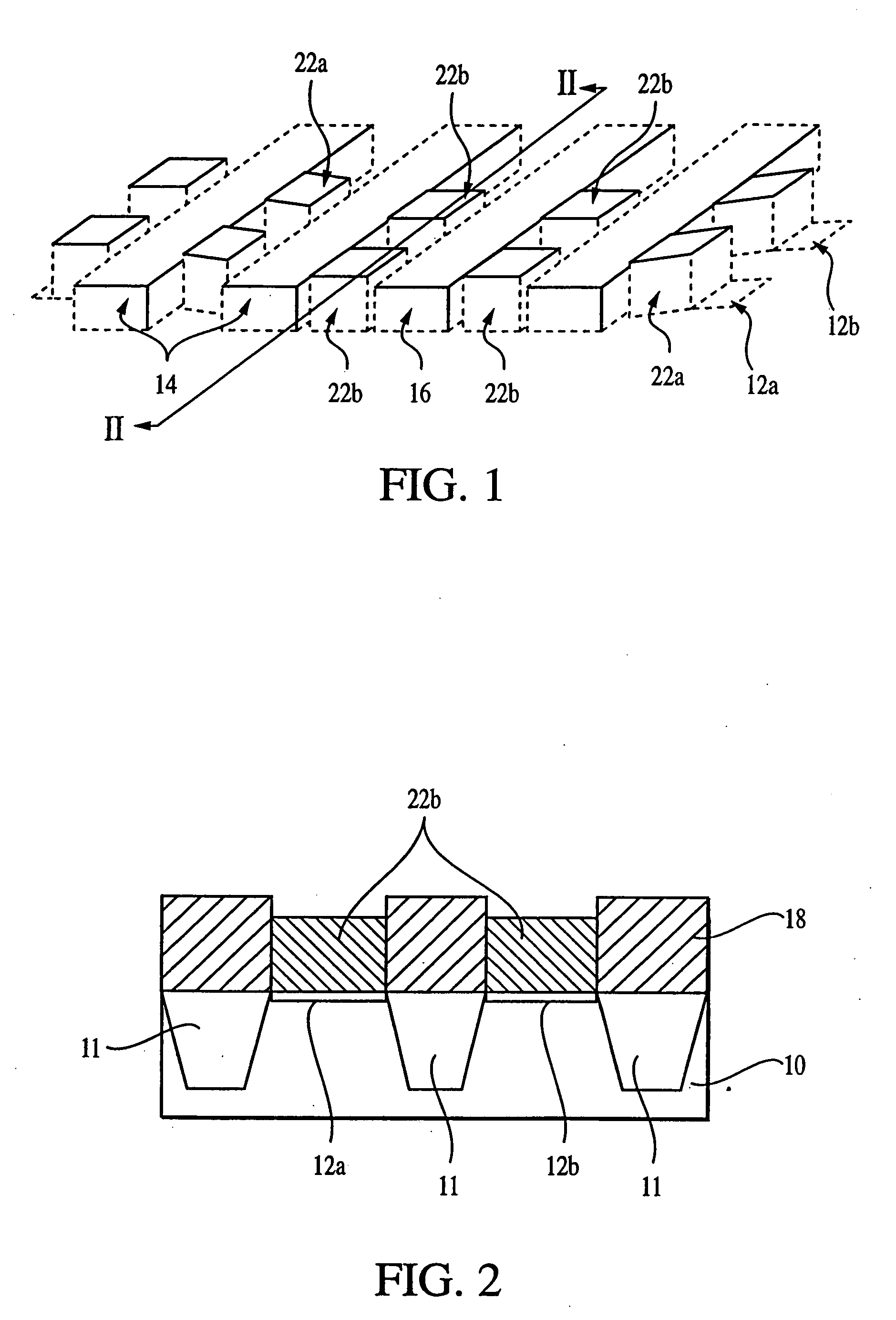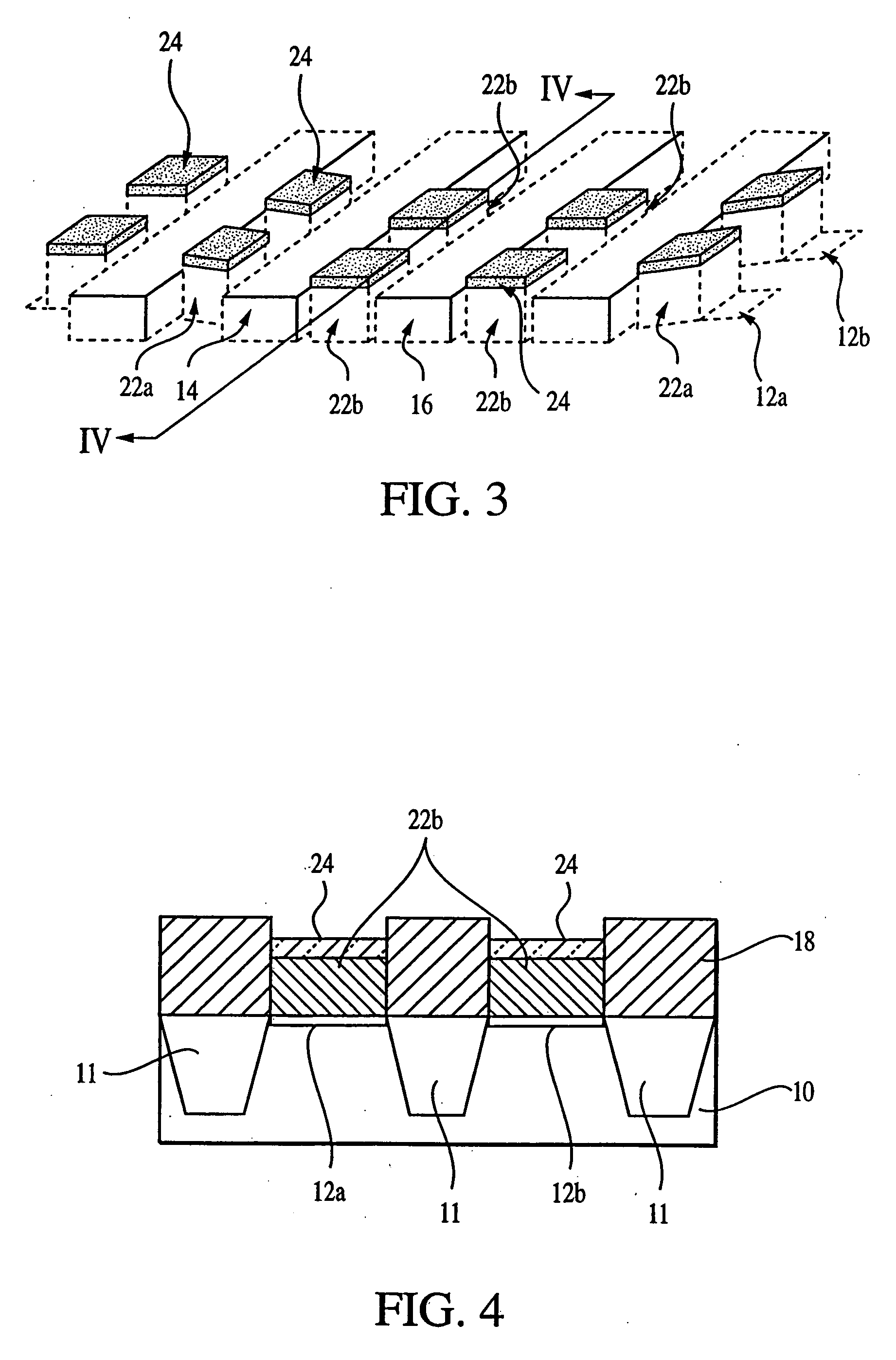Interconnect line selectively isolated from an underlying contact plug
a contact plug and interconnect line technology, applied in the field of semiconductor devices, can solve the problems of increasing the potential for shorting between adjacent electrical conductors, the close proximity of discrete electrical features within memory cells, and the problem of integrating circuit designers facing problems related to each other, so as to achieve efficient connection of interconnect lines and higher integration levels
- Summary
- Abstract
- Description
- Claims
- Application Information
AI Technical Summary
Benefits of technology
Problems solved by technology
Method used
Image
Examples
Embodiment Construction
[0022] DRAM memory circuits are currently the most popular type of memory circuits used as the main memory of processor-based systems. Therefore, the invention will be discussed in connection with DRAM memory circuits. However, the invention herein disclosed has broader applicability and is not limited to DRAM memory circuits. It may be used in any other type of memory circuit, such as an SRAM (static random access memory), as well as in any other circuit in which electrical contacts are formed in close proximity to, and intended to be insulated from, other circuit devices.
[0023] Also, the terms “wafer” and “substrate” are used interchangeably and are to be understood as including silicon, silicon-on-insulator (SOI), and silicon-on-sapphire (SOS) technology, doped and undoped semiconductors, and other semiconductor structures. Furthermore, references to a “wafer” or “substrate” in the following description, do not exclude previous processing steps utilized to form regions or juncti...
PUM
 Login to View More
Login to View More Abstract
Description
Claims
Application Information
 Login to View More
Login to View More - R&D
- Intellectual Property
- Life Sciences
- Materials
- Tech Scout
- Unparalleled Data Quality
- Higher Quality Content
- 60% Fewer Hallucinations
Browse by: Latest US Patents, China's latest patents, Technical Efficacy Thesaurus, Application Domain, Technology Topic, Popular Technical Reports.
© 2025 PatSnap. All rights reserved.Legal|Privacy policy|Modern Slavery Act Transparency Statement|Sitemap|About US| Contact US: help@patsnap.com



